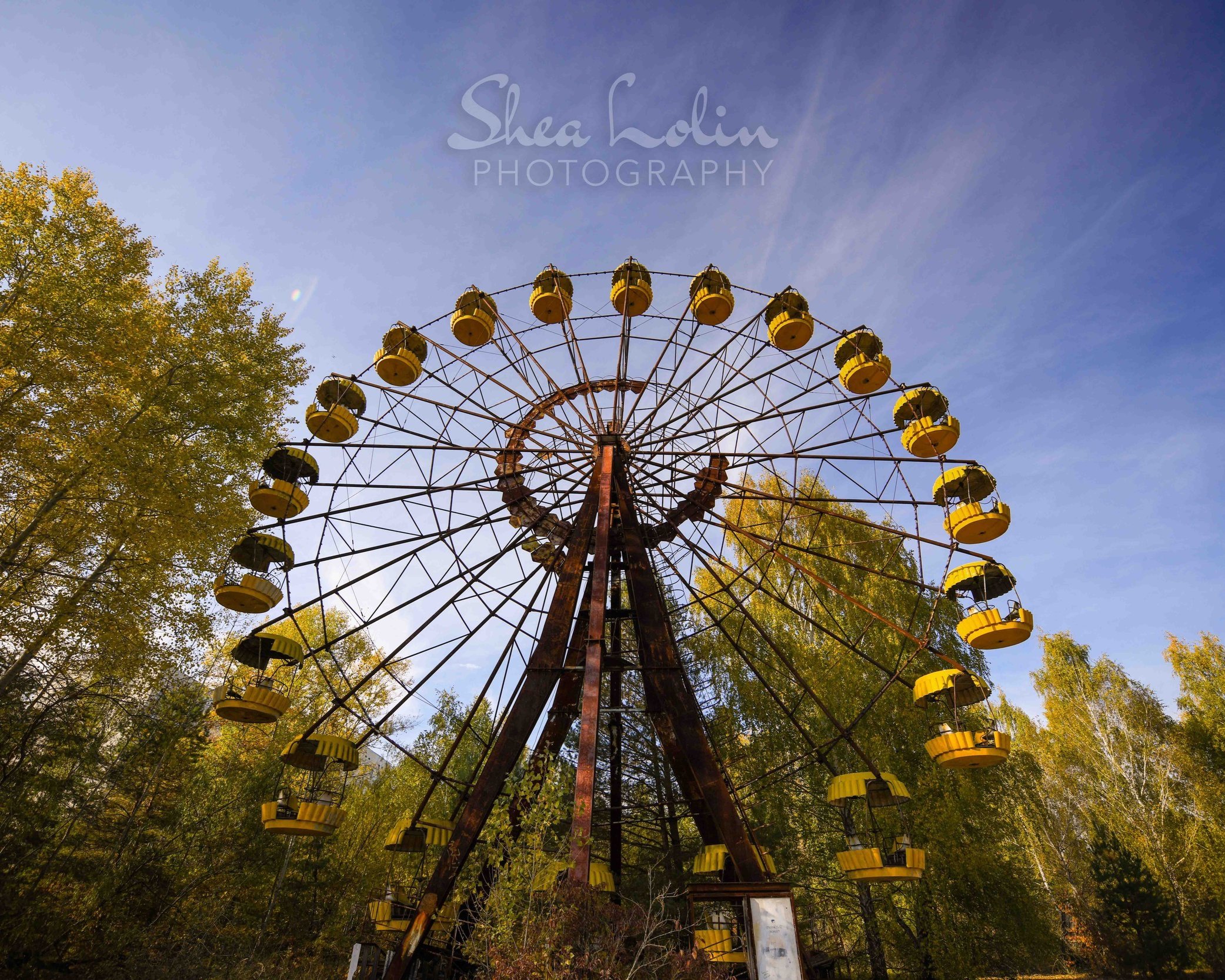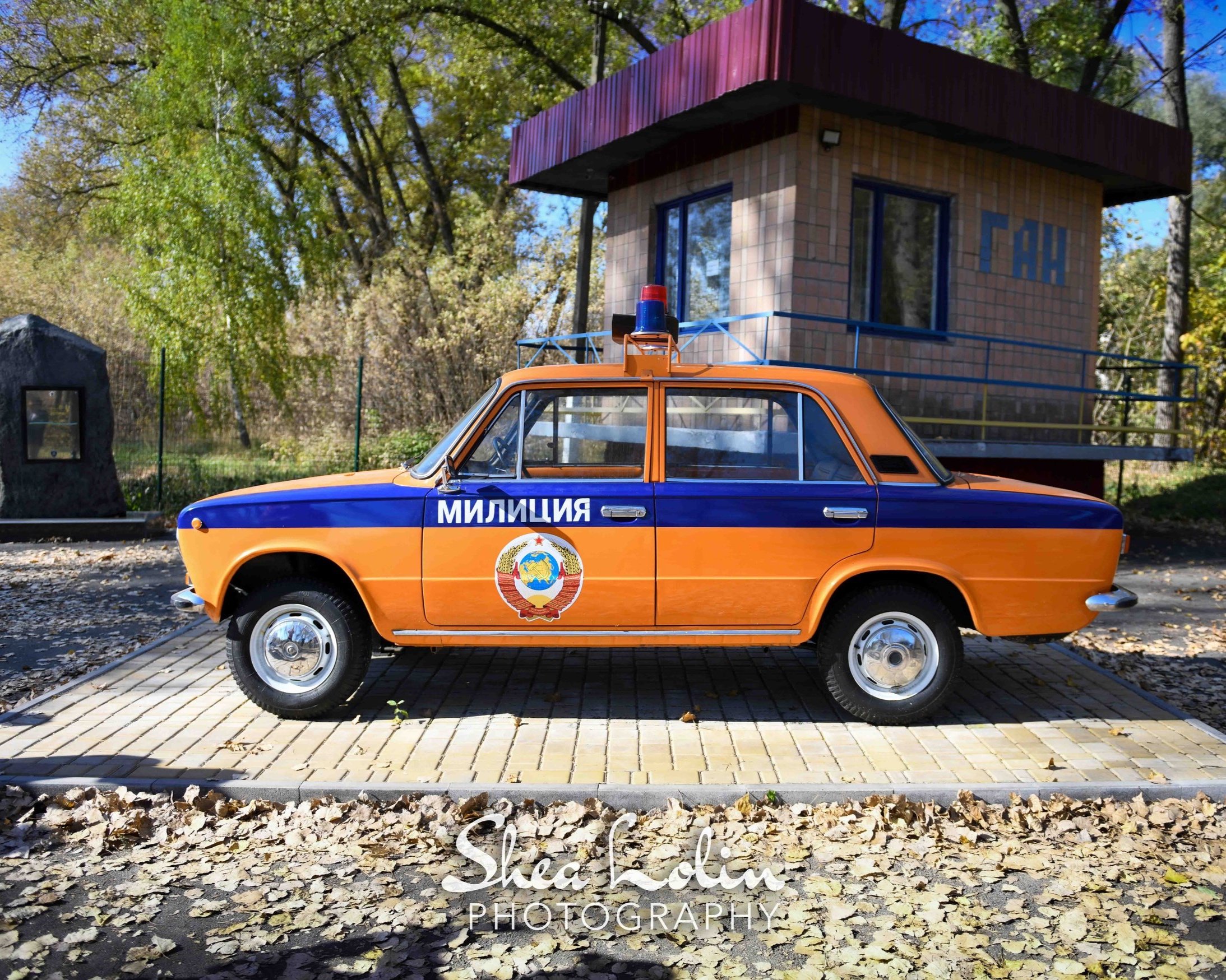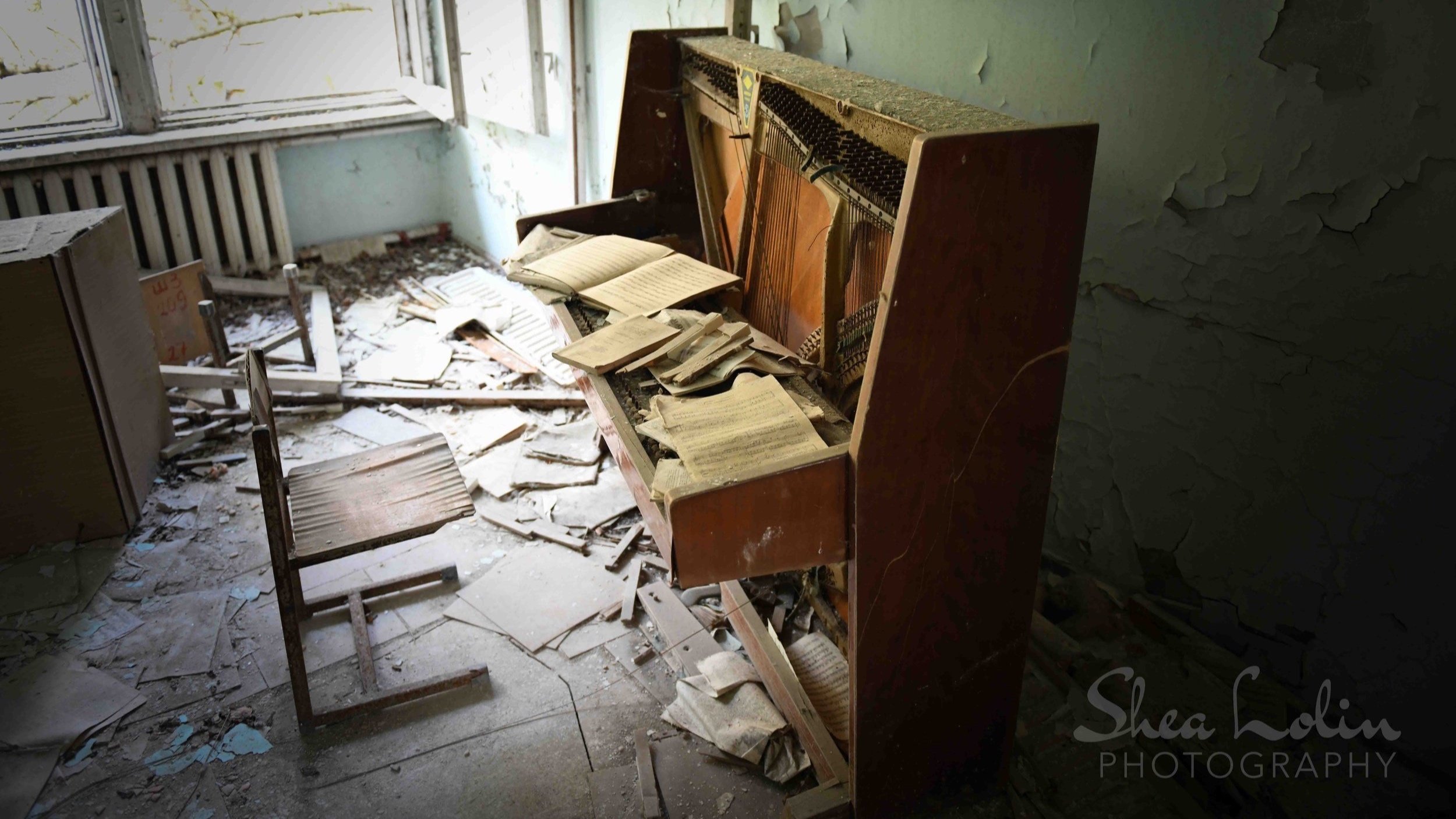A musicians view
of Chernobyl.
In October 2021, an opportunity arose to for me to join a group of commercial drone pilots in Chernobyl. The abandoned city in northern Ukraine lays derelict, a stark reminder of the worst nuclear disaster in history and unimaginable suffering.
The original Pripyat city sign
The iconic Ferris wheel in Pripyat
An iconic Lada — as used by the first responders
Entering the exclusion zone is an edgy experience to say the least. At the checkpoint, we had to lay all our equipment out on the road where armed guards slowly read each of our passports, papers and serial numbers from our aircraft.
Abandoned blocks of flats in Pripyat
Witnessing an abandoned city where 50,000 people once lived was a profound moment for me. But it was one particular moment that I found arresting and one which stayed with me long after I had left. This moment was to become the basis for an eight-minute finished piece of film, presented exclusively here on my website.
Whilst walking through a school in Pripyat, I found a music department. On the floor lay all kinds of things, mostly rubbish but a few interesting things here and there. In a small practice room off a main corridor, I found an open piano score next to an upright piano. Ripped, damaged and with pages missing, I couldn’t help but to look – what could the student have been learning? It was immediately recognisable to me as ‘October: Autumn Song’ from Tchaikovsky’s The Seasons, Op.37a. As I read the manuscript, I heard the deep resonance of a D minor chord that the piece opens with. It was quite a poignant and meaningful discovery.
A small practice room where the manuscript was seen
A manuscript with Tchaikovsky’s October from The Seasons
Later that day, I kept hearing the piece in my head and it sort of became the soundtrack for the rest of the time I was in Pripyat. I kept thinking about the magnitude of what I’d seen. Not only is the piece an outstandingly beautiful example of Tchaikovsky’s music, it had deeper roots still. The Soviet Union stressed that high art should be brought to the masses to culturally elevate them. Tchaikovsky was widely taught and performed in the USSR. The music I was hearing was part of the Soviet Union’s vision.
Playing one of the many shattered pianos in a piano shop in Pripyat. Photo by James Myles Bastable.
Perhaps it was coincidence that it was October when I found the score, but I found the experience a bit creepy. In the four months since I visited, I’ve manged to process all of what I saw. It felt appropriate to make something as a memorial for all those who have suffered as a result of this appalling disaster.
I recorded the piece in my studio at Parndon Mill on my Kawai CA99 piano. You’ll recognise its also me on the voiceover as I wanted it to have a personal feel and to encapsulate my feelings towards seeing the manuscript.
As I write this, I’m seeing news reports of war in Ukraine. Kyiv has been attacked and our contact in Chernobyl who works at the reactor tells us that Russian troops have invaded the entire exclusion zone. It seems that most of the world is united right now in condemning the actions of Vladimir Putin, but it feels all the more heartfelt to directly know those who are caught up in this awful situation that has been simmering for the last eight years and beyond. The Cold War has a long and complex history but Ukraine became an independent and sovereign country in 1991. We all have a right to defend our freedoms and protect our way of life. I genuinely hope there can be some diffusion. Surely we must have learned by now that if there is no de-escalation, history will indeed repeat itself. But as I see the current state of play I can only declare that I #standwithukraine







